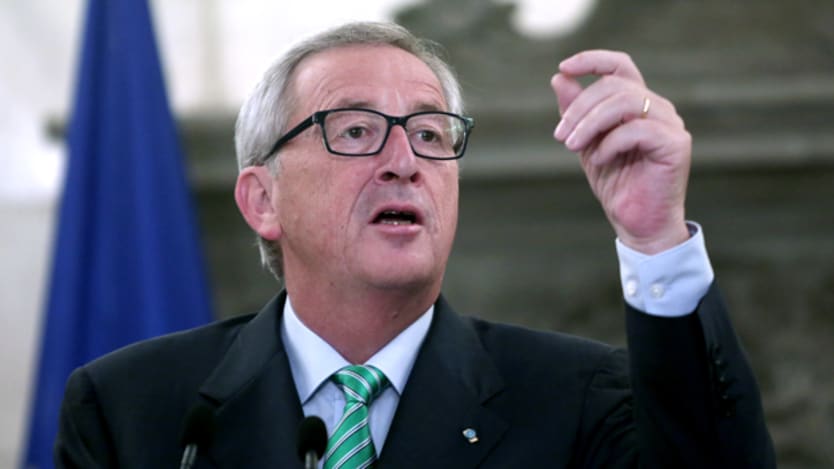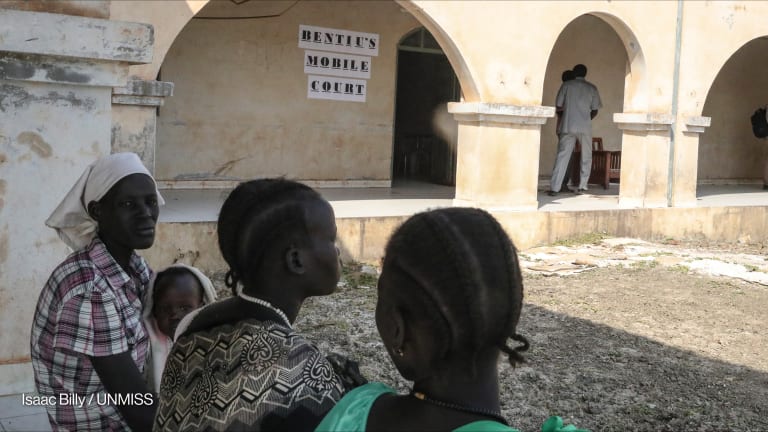
By Paul Engel, Giovanni Grevi, Simon Maxwell, Dirk Messner and Kevin Watkins
The long process of appointing a new leadership team in Europe to sit alongside new European Commission President Jean-Claude Juncker has monopolized the attention of Europe’s heads of state and has slowed down the work of European institutions.
The risk is that a lame-duck commission will be unable to display the necessary vigor or have the room for maneuver required by a new team facing a range of urgent external crises, including simultaneous conflicts in Ukraine, Gaza, Syria, South Sudan and the Central African Republic.
Once in place, the new EU leadership needs to act rapidly and with determination to address not only these urgent crises, but also critical longer-term challenges that will shape both European and global welfare in the years to come.
In a memorandum for the new EU leadership, we have identified five such long-term challenges with the following common characteristics: they are global in character, they need to be tackled if Europe itself is to prosper, and they require action both internally in Europe and externally in the world.
1. On jobs and sustainable livelihoods
The first challenge is to find and deliver a 21st century growth model that delivers jobs and sustainable livelihoods to the young people of Europe and to the billion people around the world living in absolute poverty. Yet, the EU’s strategy for growth is driven by a domestic agenda, even though better trade, international taxation and global financial management all offer great opportunities to not only improve economic prospects in Europe, but to simultaneously lift developing countries out of poverty.
2. On a global climate agreement
The second challenge is to work for an ambitious global climate agreement in 2015, and support the transition to a green economy. Europe’s own sustainable energy plans are waning as it prioritizes macroeconomic stability and the promotion of short-term growth at a time when ambitious initiatives are needed to give impetus to the global climate negotiations.
On Sept. 23, world leaders will meet at a climate summit in New York at the initiative of U.N. Secretary-General Ban Ki-moon. Who will speak for Europe at this crucial time?
3. On conflict and state fragility
The third challenge is to tackle conflict and state fragility, not in crisis mode, but in the longer term, by mobilizing all of the EU’s diplomatic, financial and military resources in support of conflict prevention. EU initiatives in the CAR show what can be achieved when the EU deploys all its assets. Replicating these will require unity of purpose and strong leadership with the mandate from EU member states to lead and coordinate. Europe needs peace beyond its borders in order to guarantee the safety of its own citizens.
4. On human rights
The fourth challenge is to support human rights on a wider scale, whether these are political, social or economic. Hardly a day goes past without some new issue challenging the EU, whether freeing political prisoners, tackling gender inequality or confronting the suppression of popular voice. The consequences of failure will be seen in the sinking hulks carrying refugees across the Mediterranean.
5. On poverty and inequality
Finally, the EU must continue to tackle poverty and inequality within its own borders and in the developing world, deploying not just aid, but all its trade and environmental resources. Seen from within Europe, the rest of the world is a vital source of raw materials, manufactured products, markets, innovation and cultural enrichment. Seen from the outside, the EU is a source of goods and services, technology, aid and inclusive and accountable political and social models. At its best, the EU can contribute technical, institutional and financial resources to achieve global public goods.
The post-MDG period
Crucial decisions on all these topics are pending. In particular, the world is currently finalizing a sustainable development framework for the post-2015 period, a successor to the Millennium Development Goals. The MDGs delivered sustained focus, resources and, above all, results.
The new framework will include environmental objectives in addition to poverty, education and health goals. It will set targets for open and accountable institutions, and for the realization of political and social rights. Importantly, it will apply to rich countries as well as poor: Making a better world will be a shared responsibility.
We therefore need politically strong, visible and experienced leaders as EU commissioners in the fields of foreign affairs, development and climate to see this through.
It is perfectly possible that Europe’s long and arduous political process will leave us stranded at this crucial juncture; counting votes in the EU Council or Parliament when our best leaders are most needed on the international stage.
Did we say the slow process poses a risk? It is much more than that. Europe must take the lead — and time is short.
Join the Devex community and access more in-depth analysis, breaking news and business advice — and a host of other services — on international development, humanitarian aid and global health.








